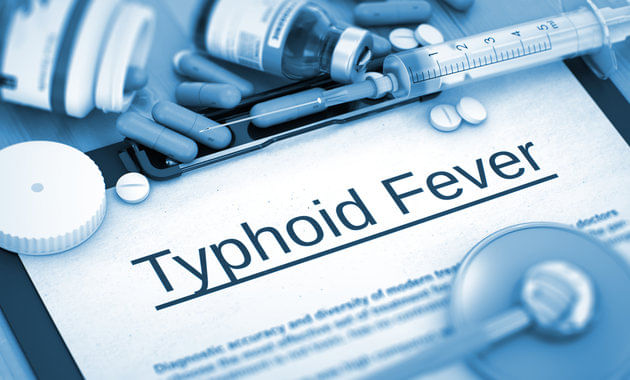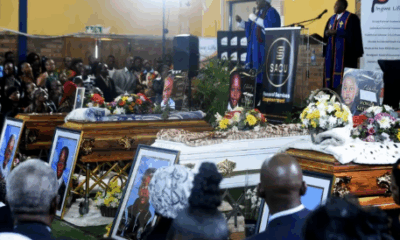News
Typhoid Hits Tshwane: Residents Face Water Crisis Amid Governance Concerns

Typhoid Outbreak Sparks Alarm in Tshwane
As Tshwane continues to wrestle with the fallout from its controversial R777 million water tanker saga, the city now faces a public health scare: a surge in typhoid cases. Reports have emerged from Bronkhorstspruit and Hammanskraal, prompting urgent investigations by municipal and national health authorities.
City spokesperson Lindela Mashigo confirmed that while laboratory tests have identified the increase in typhoid cases, the source of contamination remains unclear.
“Preliminary water tests have not yet established an epidemiological link between these cases,” Mashigo said, noting that investigations are ongoing in collaboration with the departments of health, water and sanitation, and the National Institute for Communicable Diseases (NICD).
Drinking Water Still Being Tested
The city maintains that routine water quality testing continues and, so far, no traces of Salmonella Typhi have been detected in municipal water.
Mashigo urged residents to avoid using untreated river or borehole water and to follow strict hygiene practices, including handwashing and safe water storage.
“Only properly treated municipal water should be used for drinking and cooking,” he stressed.
Despite these assurances, residents are skeptical, citing years of unreliable water supply, especially in rural areas like Hammanskraal.
DA Voices Alarm Over Hammanskraal Surge
Opposition leader and DA mayoral candidate Cilliers Brink said the outbreak highlights the ongoing water access crisis in Tshwane.
“Hammanskraal has been without reliable potable water for years. Even after the launch of a multi-phase water project in January, residents still have dry taps,” Brink said.
He called for the immediate release of water quality tests for key systems including the Rooiwal, Apies River, and Leeuwkraal, warning that such tests are critical early-warning tools.
“Water is a likely source of this outbreak and must be addressed urgently,” Brink said.
Residents Struggle Amid Water Shortages
At Jubilee District Hospital, a patient described the dire situation:
“We haven’t had water for a week. Patients can’t bathe, use bathrooms, or drink. The wards are stinking, and there’s no backup like JoJo tanks or mobile toilets. It’s so frustrating.”
For communities relying on municipal taps, these shortages amplify the health risks, leaving residents vulnerable to waterborne diseases like typhoid.
Civil Society Demands Accountability
WaterCAN’s Ferrial Adam condemned the city’s handling of the crisis, arguing that massive spending on water tankers has not translated to safe drinking water for residents.
“This outbreak is not an accident. It’s a symptom of neglect and failed governance,” Adam said.
“We demand full transparency on water quality and immediate accountability from those responsible.”
Social media reaction mirrors public frustration, with residents questioning why millions are spent on temporary solutions while basic water safety remains unmet.
A Crisis Beyond Typhoid
While officials investigate the outbreak, it is clear that Tshwane’s water challenges are systemic, rooted in decades of inadequate infrastructure, stalled projects, and poor governance. The current typhoid cases may be the latest symptom, but they reflect a longstanding struggle to secure safe and reliable water for all residents.
Until the root cause is identified and addressed, residents remain at risk, and the city faces mounting pressure to act decisively,not just on public health, but on restoring trust and accountability in its water management systems.
{Source: The Citizen}
Follow Joburg ETC on Facebook, Twitter , TikTok and Instagram
For more News in Johannesburg, visit joburgetc.com



























